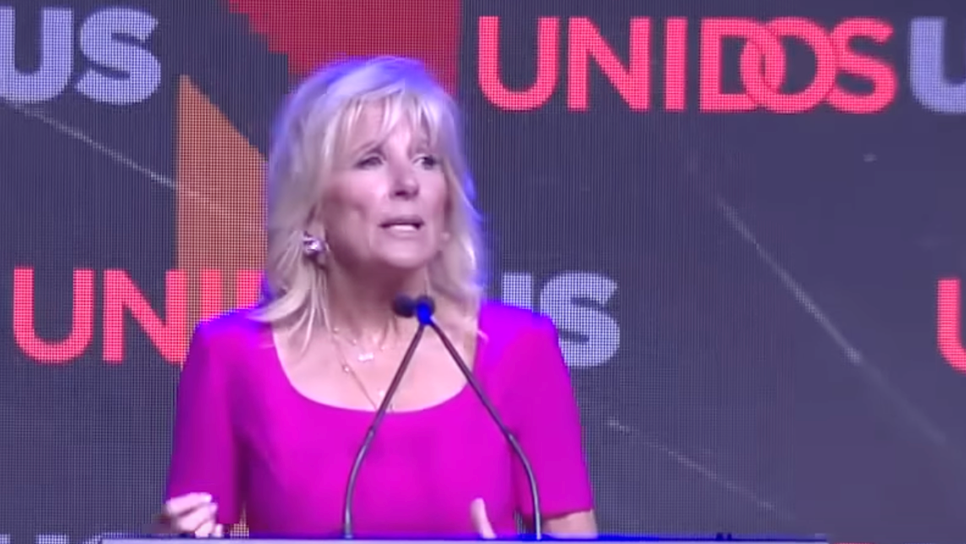Second federal judge issues block on Trump administration funding freeze
A federal judge has taken action to halt the Trump administration's attempt to freeze federal funding for various programs, siding with a group of states against the directive.
A coalition of 22 states, arguing that the directive violates the law, successfully secured a temporary restraining order against the funding suspension initiated by the Trump administration, as NBC News reports.
U.S. District Judge John J. McConnell of Rhode Island issued the order, responding to legal filings from these states who worried about potential disruption and damage from the administration's decision.
The controversy began following the release of a memo by the Office of Management and Budget (OMB) last week. This memo instructed agencies to review programs for alignment with President Trump's priorities, excluding only Social Security, Medicare, and direct payments to individuals.
The directive led to immediate backlash from several nonprofits and states, culminating in multiple lawsuits challenging its legality.
Judicial Reactions to Budget Directive
On Monday, after being on the books for just two days, the contentious OMB memo was revoked, adding a layer of confusion. The temporary restraining order from Judge McConnell aims to maintain stability while legal proceedings continue. This decision follows an earlier similar action by Judge Loren AliKhan, who also put a pause on the directive, advocating for a comprehensive legal debate.
In Judge McConnell's view, the states have a strong case regarding their arguments that the directive oversteps presidential authority.
He highlighted that any belief by the executive that budget provisions clash with its agenda should be addressed with Congress, not by acting alone. This perspective echoes the underlying tension between the executive branch's goals and legislative authority over fiscal matters.
Rhode Island Attorney General Peter Neronha condemned the funding freeze, emphasizing its potential to undermine essential services nationwide.
According to Neronha, the directive would negatively affect public safety, healthcare, services for veterans, childcare, and disaster relief. He asserted that Congress had already allocated these funds, upon which Americans depend, and questioned the administration's motives as possibly intending to incite fear and disorder.
Confusion Ensues Over Federal Budget Freeze
Despite the lifting of the OMB memo, White House spokesperson Karoline Leavitt clarified on social media that the federal funding freeze remained intact. She stated that only the memo was retracted to eliminate any misunderstanding caused by the court's intervention and that the executive orders related to budget matters would continue to be enforced.
Judge McConnell's ruling highlighted what he says is the foundational necessity for balance in governmental power, specifically referencing the necessity for the executive branch to seek legislative approval when dealing with appropriations.
He noted that while there may be legal grounds for certain aspects of the directive, numerous instances in the executive orders' sweeping pause of essential funding are likely not permissible.
The coalition of states united against the funding freeze firmly believes that such an executive action is not backed by any federal statute. Instead, as argued in court, they insist that the move disregards the lawful procedures designed to govern executive dealings with budget allocations.
Impact of Legal Challenges Remains to be Seen
As litigation proceeds, the states involved are focused on protecting their interests and the interests of their citizens who rely on these federal funds. The discussion surrounding this high-stakes legal battle speaks to broader concerns about governmental authority and its limits.
Details in these court decisions have laid the groundwork for further discussions about the constitutional powers of the executive branch concerning financial allocations. Attorneys general across the participating states are keenly observing how these rulings unfold, setting significant precedents for future governance.
President Trump's broader agenda, as demonstrated through these funding directives, faces continuous challenges, with judicial scrutiny serving as a pivotal check. The administration's approach to fiscal policy -- especially funds that impact substantial portions of the American public -- remains a focal point for bipartisan examination.
The federal funding freeze, as implemented through executive orders and the now-rescinded memo, leaves a trail of legal and societal implications that continue to be a subject of debate and analysis. Legal representatives of affected states plan to persistently pursue actions to secure the funding on which their communities rely, reinforcing the message that collaboration between governmental branches is necessary.
Representatives from the 22-state coalition continue to engage in dialogue, assessing further legal avenues and preparing for extended negotiations with the federal government. Amidst an environment of evolving political dynamics, the story of the funding freeze and its judicial rebuff illustrates ongoing tensions in fiscal governance.




